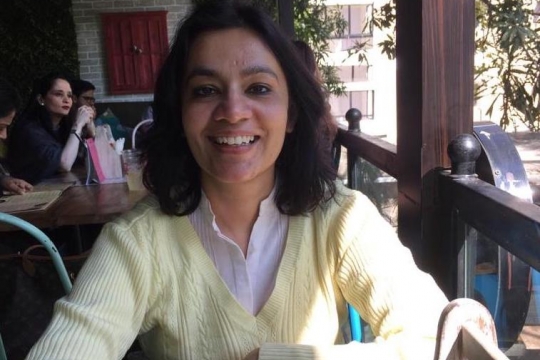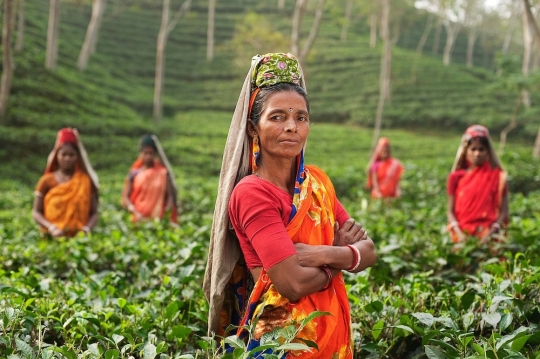She is dividing her time between the Indian Statistical Institute in Delhi, the International Growth Centre’s India program, and the Institute of Labour Economics in Bonn. Currently, she is leading several research projects and teaching remotely from Singapore. Meet Farzana Afridi, one of the keynote speakers at EfD’s Annual Meeting!
What will you talk about at the Annual Meeting?
My presentation will be about my ongoing work on the relationship between women's work, production technology, and the environment. Women have a disproportionate burden of home production compared to men, reducing their access to market work. I’ll tie that to my work on using clean cooking fuel versus solid fuel and the implications on women’s welfare as well as the transformation of the agricultural sector.
How come you are in Singapore and not in India?
I just moved here with my family since my husband is a diplomat and will be posted in Singapore until 2023. Thanks to the pandemic, it turned out that I can work remotely, so moving here has worked surprisingly well. In addition, schools in India are closed making it very difficult for parents to work, while schools are open here in Singapore which means I can continue my full-time job.
What projects are you working with right now?
I have several projects in different stages and I also work with different teams. The projects focus on the labor force, gender, and agriculture. We have, for instance, seen a decline in women’s participation in the workforce in India, contrary to what you might expect, so we are trying to find out why and what to do about it. Other studies involve the agricultural sector, which is in transition and we want to learn what that means to women’s work opportunities. One study that we have just concluded analyzed the effectiveness of a cash-back system to encourage the purchase of improved cookstoves (ICS).
Have you adjusted the themes of your research due to COVID-19?
"Yes, the pandemic has had considerable effects on our society and the areas that we study. I have an ongoing study on improving urban women's access to work opportunities which began in 2019 and we are continuing to survey these women and their husbands' labor market outcomes and emotional wellbeing during the pandemic. In addition, I am working on mapping the relationship between mobility, social connections, and employment outcomes during the pandemic as well as understanding peoples' perceptions of corruption in the health sector during the virus outbreak in India."
Are there some topics that you are extra passionate about?
For me, it’s really important to look at labor issues from a gender perspective – how policies should be designed to improve the welfare of households. When we hear scientists today, discuss gender issues, it’s always women. But it shouldn’t be that way. When you improve the welfare of women and their work-life you also improve the welfare for their children and for the whole society.
Is there something in your career that you are extra proud of?
I haven’t thought about that! Maybe the fact that I have survived in a research environment that is very male-dominated and have done reasonably well. To have made meaningful contributions from a policy perspective. And to have done this while balancing family obligations with my career.
Learn more about Farzana Afridi!
By: Petra Hansson

